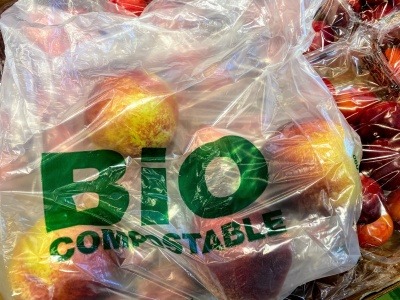Government failing on strategic commitments to compostable material
The Bio-based and Biodegradable Industries Association (BBIA) has written to the UK Government calling on it to align policy with strategy for biodegradable products that conform to composting standards.
 In its policy analysis paper, obtained by Resource, BBIA highlights Government strategies published since 2017 which relate to bio-based and biodegradable plastics, including the 2018 Waste and Resources Strategy.
In its policy analysis paper, obtained by Resource, BBIA highlights Government strategies published since 2017 which relate to bio-based and biodegradable plastics, including the 2018 Waste and Resources Strategy.
This Strategy, BBIA asserts, goes into ‘considerable detail’ on the use of bio-based, biodegradable, and compostable materials, which it identifies as one of its key strategic ambitions. The Waste and Resources Strategy also lays out intentions to ensure waste collection systems are ‘comprehensive’, which would guarantee ‘high levels of quality recyclable or compostable materials are available for reprocessing’.
Specific reference is made in the Strategy to the onward journey of compostable plastics, differentiating them from biodegradable plastics, which cannot be sent for composting. Instead, these ‘can also be sent to anaerobic digestion (AD), but operators of wet AD systems must include a pre-treatment composting step’.
BBIA’s analysis notes the Government declared that, by joining the Ellen MacArthur Foundation’s New Plastics Economy Global Commitment, it will ‘put ambitious policies in place well ahead of 2025’ in several key areas, with ‘incentivising the use of reusable, recyclable, or compostable plastic’ stated amongst them.
Significantly, the Government has provided investment into bio-based industries through its non-departmental public body, UK Research and Innovation (UKRI). The body, BBIA states, has ‘invested millions’ in UK outfits seeking to ‘perfect the processes to manufacture innovative, bio-based materials’.
Despite the ‘burgeoning number of start-ups’ investing in this sector and the ‘uptake of major brands of innovative, compostable, and bio-based packaging’, the BBIA is concerned that actual legislation introduces barriers to development for the sector.
These include the Plastic Tax, the Waste and Resources Strategy itself, the proposed ban on Single-Use Plastics 2021/22, and the Government’s 2019 consultation on standards of biodegradable and compostable plastics. All policies, in their current state, BBIA says, are in conflict with the Government’s strategic thinking and are ‘unfavourable to the industry’.
Specifically, the Plastic Tax makes no distinction between bio-based and compostable plastics and conventional plastics. In its communication to Government, BBIA contends that as the content of bio-based plastic is organic carbon that is recycled through composting, where compostable packaging contains at least 30 per cent renewable carbon, the material ‘should be considered the same as 30 per cent recycled content’.
The proposed ban on Single-Use Plastics similarly makes no distinction between conventional plastics and compostable versions, with compostable plastics expected to fall within the scope of the ban.
BBIA also points to the Waste and Resources Strategy, which, following consultations, is expected to see compostable packaging collected alongside general waste, rather than being collected separately or with food waste. Extended producer responsibility (EPR) costs for compostable packaging, the association states, will therefore be ‘at the highest rate because the materials will be deemed unrecyclable’, reducing the material’s competitiveness.
Within each of the Government’s strategic documents, BBIA highlights several references to ‘the need to innovate and promote biotechnologies, and to reduce the use of plastics, substituting them in certain applications with bio-based, biodegradable, and compostable plastics’. The capacity of the UK to use bio-based, renewable resources is further referenced as a means of reducing fossil fuel consumption.
Other significant publications that similarly recognise the value of biodegradable materials include:
- The Industrial Strategy 2017
- 25-year Environment Plan 2018
- Innovation Strategy 2021 (substituted the Bioeconomy Strategy)
- Net-Zero Strategy 2021
- Building Back Better Strategy 2021
Emphasising the readiness of bio-based industries to support the UK’s green recovery, BBIA urges the Government to bring UK policy implementation in line with strategies. This, the association says, is the only way to make the UK a ‘world leader in green and truly sustainable development’, and rebuild its economy.




